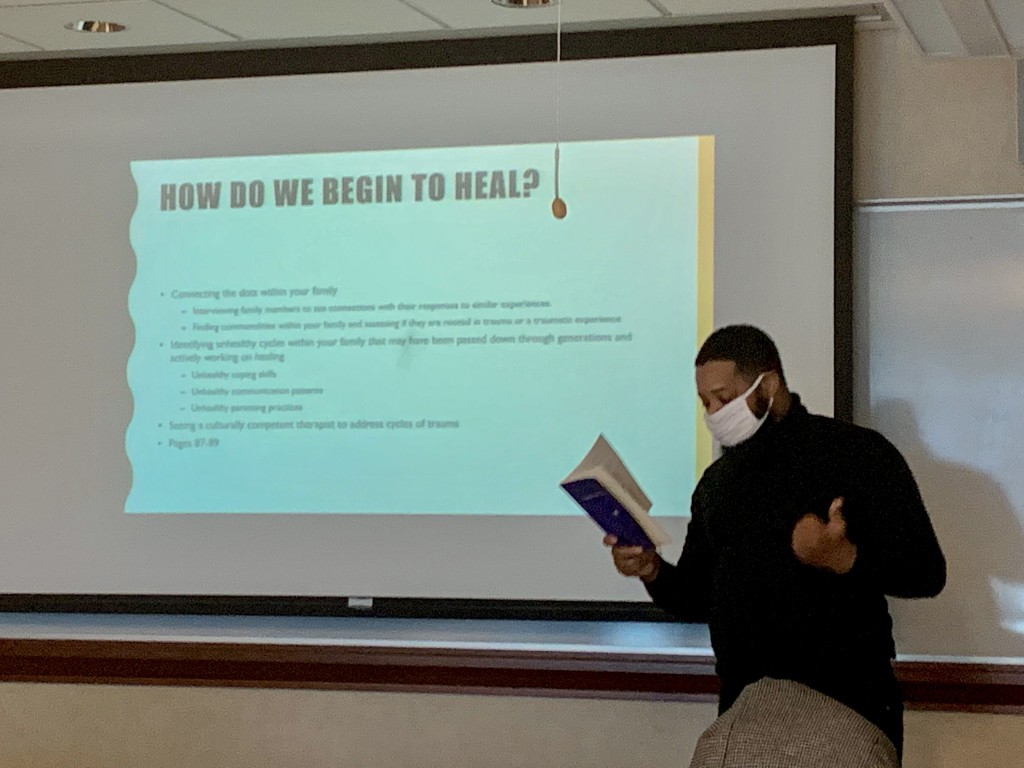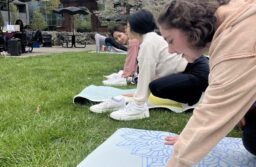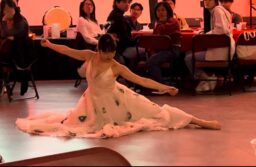
Photo courtesy of Dani Livelli.
In celebration of “African Ancestry Month,” Ramapo alumni Jared Washington, a licensed professional counselor, held a presentation on Feb. 7 discussing his book, “Heal Or Repeat: Breaking the Cycle of Intergenerational Trauma.” He shared the science, history and inspirations behind the work.
A former psychology major and African American studies minor, Washington is currently a Ph.D. student, owner of HOPE, LLC (Healing, Outreach, Purpose, Empowerment) Private Practice and father of three young children. He seeks to integrate both fields of study in a way that provides true healing to marginalized folks carrying not just personal trauma, but centuries of violent historical trauma in their minds, hearts and DNA.
Introduced by Dr. Karl Johnson as “one of his best former students,” and someone who “teaches positive things in the community and [is helping to] guide people to a new world order,” Washington explained what intergenerational trauma is, why and how it occurs and what can be done to heal it.
“Trauma is the Greek word for ‘wound.’ It is adverse experiences with long lasting effects,” he said.
An event doesn’t need to be experienced first-hand to cause trauma. He continued to explain racial trauma as “cumulative effects of racism on an individual’s mental and physical health” and historical trauma as “cumulative emotional harm of an individual or generation who share a specific group identity, caused by a traumatic experience or set of events with genocidal or ethnocidal events.”
Describing trauma as “intergenerational” indicates it has been passed down from generation to generation. Washington explains that “historical trauma can create the cycle for intergenerational trauma if left unresolved.”
He explained that negative behavior patterns and coping skills are likely to be passed down from parent to child as that is how their parents and the parents before them did things. In turn, those negative coping skills get conflated as culture within the Black community itself.
“Trauma can leave markings on genes that can be passed down, even to grandchildren, though they haven’t experienced the event themselves,” Washington said, explaining how trauma can manifest itself in altering personal genetic expression.
“No, Black people can’t just ‘get over slavery’ when there’s never been a space for healing. What happened was more trauma. The community and family need time set out to heal.”
His recommendation is to seek a therapist who shares and therefore understands the nuances of these experiences. Other pieces of advice include journaling and meditation.
Johnson will be asking RCNJ to purchase at least 1,000 copies of Washington’s book and distribute them to students as a means to spread such crucial information. Students are encouraged to reach out to leaders on campus in support of this initiative.
dlivelli@ramapo.edu





